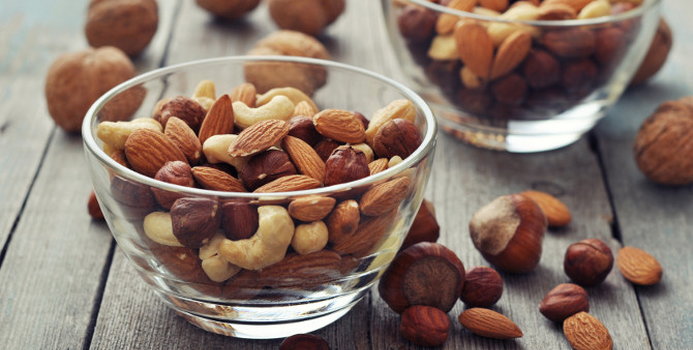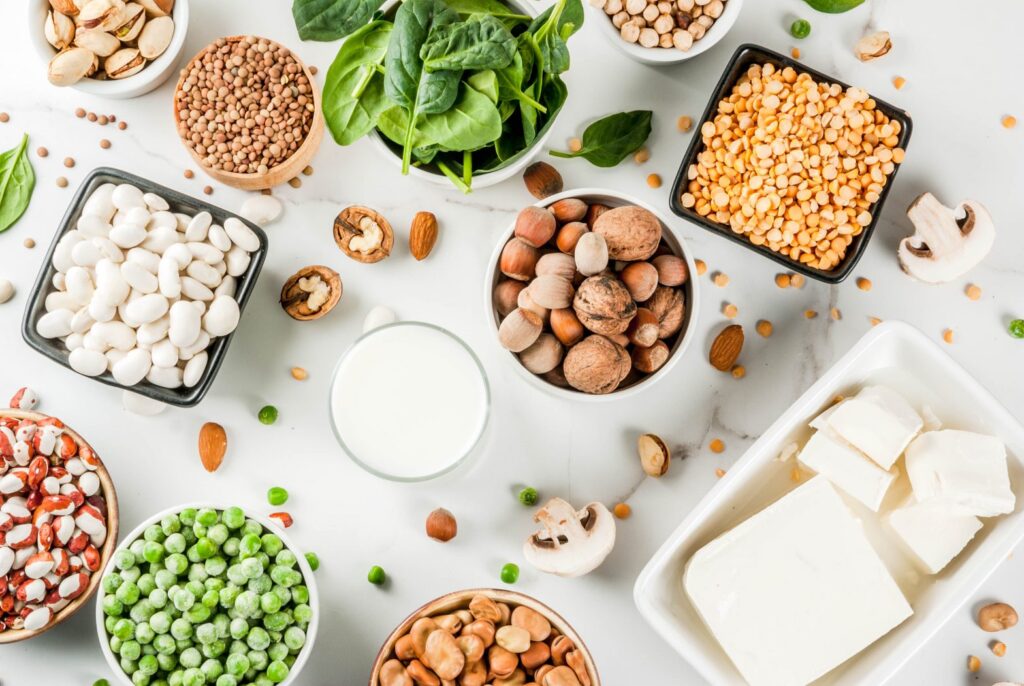In order to avoid or lessen the severity of sleep apnea, maintaining a healthy weight through food and exercise is essential. In addition to your primary care physician and the Sleep Specialist from Air Liquide Healthcare, you might want to consult with a personal trainer or nutritionist. A personal trainer will help you create a customized exercise programme and will be available to provide encouragement and feedback as you work through it. And although dietitians won’t give you a pat on the back every time you eat a salad, they can help you map out a healthy eating strategy.
Preventing or alleviating sleep apnea symptoms is possible via maintaining a healthy weight with a balanced diet and frequent exercise.
Avoid These Foods If You Suffer from Sleep Apnea
Inflammatory Foods
The inflaming effects of particular foods might range from person to person. Cholesterol is an issue for some, certain foods trigger reactions in others, and some people can handle heat while others can’t stand it.
Heart disease, cardiovascular disease, and hypertension are all serious health issues, and you should try to avoid doing anything that makes them worse. If you frequently get acid reflux or heartburn, this may be a clue. Both are major risk factors for sleep apnea because of the damage they produce to the lining of the neck (or upper airway).
As a result, it’s important to avoid eating certain foods, which are well-known to trigger inflammation. Bananas, sugary processed meals, and fatty meats like burgers and sausage may all contribute to sleep apnea.

Alcohol
While we’re grilling up some burgers and sausages, let’s talk about another aspect of Thanksgiving that may use some tweaking: tailgating. There are often heated college football rivalry games on the Saturday following Thanksgiving, which means lots of opportunities to grill up some burgers and sausages. What else is wonderful to pair with sausage and burgers? A frosty brew.
Alcohol, the most popular beverage among American football fans, is not actually food but can make sleep apnea worse by relaxing the soft tissues of the upper airway.
You don’t want to give up any offensive drives, and one you don’t want to give up is the urge to breathe while you’re asleep.
The moment has come for those with sleep apnea to reevaluate their drinking habits on game days. In fact, if you’re interested in learning more about why alcohol is dangerous for people with sleep apnea, you can read a separate blog post I wrote on the subject.
Carbonated Soft Drinks
Carbonated candy bars don’t fare any better. Given their high sugar and caffeine content, it’s puzzling that anyone would consume one before bed. Even if your team just scored a touchdown, we don’t allow our kids do it, and you shouldn’t either.
Caffeine and sugar highs are both likely to disrupt sleep if consumed too close to bedtime. Furthermore, consuming sugary drinks frequently results in additional pounds.
If you suffer from sleep apnea, consider switching to green tea. In the following paragraph, we’ll explain why.
Sleep Apnea Diet: 6 Foods to Try
Caffeine-Free Green Tea
While there is currently no scientific evidence that any particular tea may prevent or treat sleep apnea, green tea has been demonstrated to alleviate some of the cognitive difficulties associated with the condition. Green tea’s antioxidant and anti-inflammatory qualities help repair some of the harm incurred by regular life.
Even better, it helps reduce inflammation by neutralising the effects of the inflammatory foods we stated before. Your green tea with honey can help you relax and get to sleep.

Honey
Snoring is a typical indication of sleep apnea, and honey has been shown to reduce both inflammation of the throat and volume of snoring.
Honey has several uses, one of which is reducing allergy symptoms. The use of local pollen in the production of honey has the potential to alleviate allergy symptoms for certain people. This, in turn, may aid sleep apnea by reducing inflammation and edoema in the upper airway.
Aiding Sleep Through Apnea-Friendly Nutrition
- Green Tea
- Honey
- Vitamin C and E-Rich Fruits and Vegetables
- Cherry Juice With a Bite
- Eggs
- Walnuts
- Flax with Chia Seeds
- Soybeans
- Salmon
- Poultry
Vegetables and Fruits
It’s common sense that eating a diet rich in fruits and vegetables would help with sleep apnea. The question is, why?
Many fruits and vegetables are rich in both vitamin C and vitamin E, and both nutrients have been shown to be effective in treating sleep apnea. Vitamins have been demonstrated to improve breathing and sleep quality for those who suffer from sleep apnea. The same foods that are beneficial for those who do not suffer from sleep apnea are beneficial for those who do. Eating enough of fruits and veggies before bed will help you feel fuller for longer and hence sleep better. Basically, that’s all there is to it.

Melatonin-Containing Foods
The other health-related classes are more complicated, but no less essential. There is a component in these meals, melatonin, that aids those with sleep apnea. Melatonin-rich foods are helpful for getting to sleep. Cherry juice, eggs, and almonds are all good food sources, but you may also find this natural supplement as a tablet or vitamin.
Foods containing melatonin are safer than melatonin supplements because you can better regulate the amount you eat. An overdose of melatonin can make sleep apnea symptoms worse by causing the throat and upper airway muscles to relax to the point where they restrict breathing much more than usual.
Plus, melatonin capsules might have unfavourable interactions with pharmaceuticals used to treat common sleep apnea co-morbidities including diabetes, hypertension, and even some mental health disorders. Find out from your doctor if taking melatonin orally is OK for you or if you should stick to getting it through dietary sources.

Omega-3 Containing Foods
Salmon, like many other foods, is a good source of vitamin D and melatonin as well as omega-3 fatty acids. includes salmon as well as flax seeds, chia seeds, walnuts, and soybeans as foods high in these nutrients.
Recent research has shown that eating foods rich in omega-3 fatty acids can help people with sleep apnea by controlling the production of the stress hormone norepinephrine, which has been shown to induce a decrease in REM (rapid-eye-movement) sleep.
The study’s list of high-omega-3-content seafood is quite similar to Dr. May’s; it includes salmon, wild herring, mackerel, and sardines.
Substances Rich in Tryptophan
Finally, foods high in tryptophan, such as canned tuna, whole grain oats, and chicken, are quite helpful for those with sleep disorders. Good sleep may be facilitated by the amino acid tryptophan, which is a precursor to the neurotransmitter serotonin.

When to Move from Diet to CPAP Machine Treatment
Although we’ve discussed the foods you should and shouldn’t consume if you have sleep apnea, it’s crucial to keep in mind that these treatments go above and beyond the norm for the condition. No amount of good eating and regular exercise will ever be enough to cure sleep apnea. The most effective treatment for sleep apnea has been medical, and Air Liquide Healthcare Sleep can get you set up with a continuous positive airway pressure (CPAP) machine and mask.
We’re a committed group of medical experts that think everyone should have access to the highest quality treatment and insurance coverage available. Is there a certain procedure we should follow? To begin, we accept most major private insurance plans, are approved by Medicare and guarantee to collaborate with your primary care physician to ensure that all of your medical needs are met. For the duration of the process, you can count on us to be there for you.
If you suffer from sleep apnea, all you have to do is check your eligibility to start your road toward improved sleep and a better quality of life.

